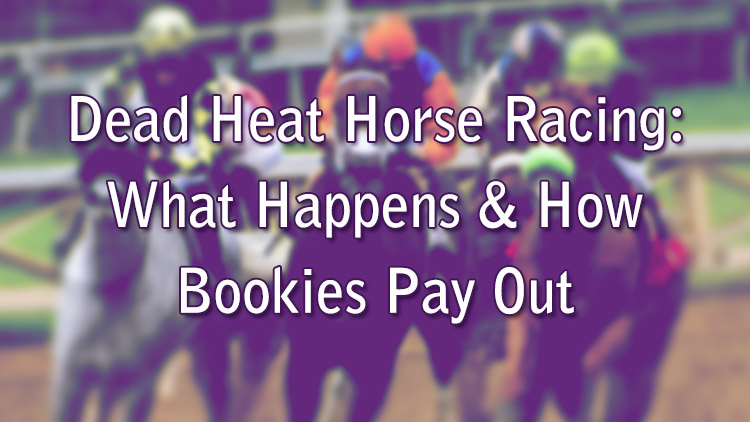
In the world of horse racing, a myriad of unexpected events can occur. One exhilarating yet perplexing situation is the 'Dead Heat'.
A Dead Heat refers to a tie between two, or in rare cases, more horses in a race. Often, modern technology like photo finishes can ascertain the winner in tight races. However, at times, the finish is so close that distinguishing a single winner becomes impossible.
In such instances, a Dead Heat is declared. But what happens when a Dead Heat occurs, and how do bookies pay out on it? Let's unravel this in this Wizard Slots blog post!
What Does Dead Heat Mean In Horse Racing?
In horse racing terminology, a 'Dead Heat' refers to an instance when two or multiple horses cross the finish line simultaneously, rendering it impossible to single out a winner. This occurrence tends to be more common in horse racing and greyhound racing, but can also occur in other sports such as golf.
A Dead Heat can be calculated by dividing the stake proportionally amongst the number of winners in the event. Therefore, in a two-way Dead Heat, your return will be half of what you might have anticipated. This situation can also be referred to as half-face value of the bet, or a bet for half the original stake.
What Happens In a Dead Heat? Rules Explained
If a Dead Heat situation arises in a racing event, both your winnings and your stake are adjusted based on the number of horses tied for the same position.
For example, if you placed a £10 bet on a horse with 6/4 odds, and it ends up in a Dead Heat with another horse, you would only receive 50% of the return you were initially expecting.
This means you would receive £12.50, comprising half of your winnings (£7.50) and half of your original stake (£5). This principle typically applies if more than two horses are involved in a Dead Heat.
How Do Bookies Pay Out on Dead Heats?
Generally, following a Dead Heat in a race, all prizes are combined and then shared.
For example, if the first-place prize is £100,000 and the runner-up prize is £65,000 and there is a Dead Heat, both prizes are combined for a total of £165,000. This means that both 'winners' will receive £82,500, respectively.
In betting terms, you are considered to have essentially backed half a winner. So, your odds or dividends are halved.
Let’s say you backed a horse at 8/1 with £20 and it Dead Heats, you would ultimately be paid £90 – half of the original £180 you would have been due.
The quality of the equipment used to decide race results has stirred quite a lot of controversy amongst many punters. Clear images can sometimes lead to Dead Heats being called, and winning bets being halved.
Conclusion
Dead Heats are a part of the unpredictability that comes with horse racing, and while they can be frustrating for punters, they can add an additional layer of suspense to the sport. Understanding the rules surrounding Dead Heats can be crucial for anyone betting on the sport.
Always gamble responsibly.
